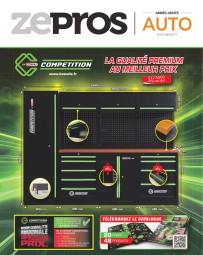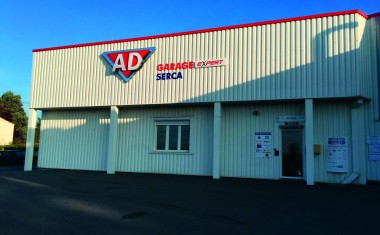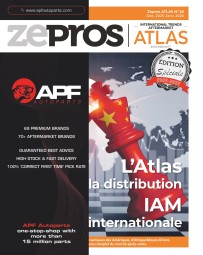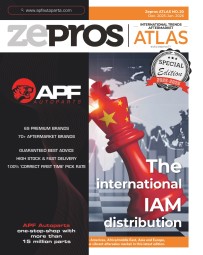
Europe : singular resilience

Amidst geopolitical tensions, high energy costs, and the challenges of the electrification of the European auto industry, the European aƒtermarket, particularly independent spare parts, has demonstrated remarkable resilience !
The vehicle parc continues to grow and age, with the average age for private vehicles now 12.3 years of which 70% are over four years old. Sales of new vehicles are in decline, electric vehicles in particular, due to consumers being all the more wary of the energy transition as subsidies for the purchase of these vehicles has significantly decreased.
The major parts groupings were able to pull through thanks to their activity in Europe. LKQ saw all its American activities decline in the third quarter, but in Europe it saw growth of 1.8%. Even so, the US giant is expected to deploy an “austerity“ plan in Europe. This has already started in Belgium and in some of its non-strategic positions in Central Europe and is likely to continue in 2025. Over the same period, its competitor GPC (parent company of AAG in Europe) saw its performance driven by passenger cars, with an increase of 4.8% overall and 5.7% in Europe !
An indispensable component of mobility
Of course, the transition to electric vehicles remains a crucial topic for independent spare parts suppliers. It is understood that they will only be able to negotiate this change through training in new technologies, proposing the required range of parts, and most importantly, if they have access to comprehensive vehicle data. But the sector can be reassured by the business of maintaining a parc of nearly 290 million vehicles, predominantly petrol and diesel, which accounts for 60% of all garage activities.
Among its strengths are a dense network with 282,000 independent spare parts distributors and multi-brand workshops within the EU. That’s 80% of work shops in the EU. This coverage is a result of a reduction in the number of car dealerships from 70,000 to 54,000 between 2010 and 2023. During this period, IAM opened 9,000 new workshops. This network and logistics chain operates efficiently, with an average of 30% of deliveries made five times a day (or more), 23% three to four times per day, and 34% once or twice a day within the EU.
Benelux and Spain in the process of consolidation
In 2024, Europe experienced limited consolidation due to the uncertain economic climate. Nevertheless, two areas appear to have attracted significant investments. Spain, which after major acquisitions by AAG, Lausan in 2022 and Gaudi the following year, saw PHE in action at the beginning of this year, with the acquisition by AD Serca of the Alicante distributor, AD Vicente. In November, the parent company of Autodistri bution announced the establishment of PHI (Parts Holding Iberia), a new purchasing centre for the Iberian Peninsula, to support the group’s growth in Spain.
In Benelux, several notable acquisitions are worth mentioning. Doyen, a historic partner, invested in Autofix. AAG, through successive acquisitions of Roskamp and Habu Automa terials in the Netherlands, made several purchases. At the same time, AAG, owned by GPC, acquired SDS Carparts and then Eldis NV in Belgium. It should be noted that for greater clarity in certain markets, AAG is harmonising its network branding with PartsPoint covering the Netherlands, AAG in Germany and NAPA Auto Parts in the UK ! Although mature, Europe is still in the process of consolidation, even in the west. The second wave of concentrations mentioned in last year’s Atlas, particularly in Central and Eastern Europe, is merely delayed.









